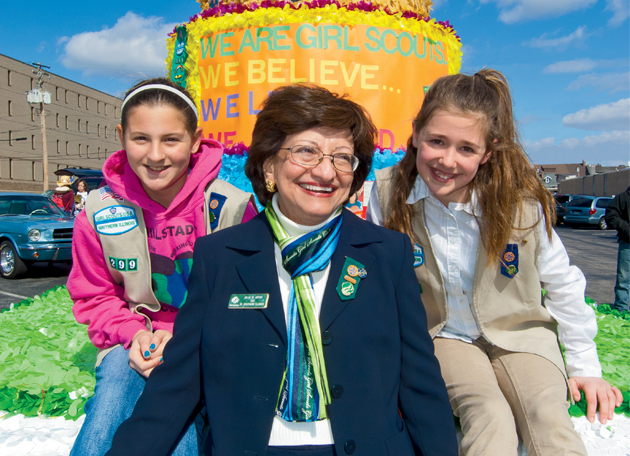
As CEO of Girl Scouts of Southern Illinois (GSSI), Villie Appoo, MSW ’76, doesn’t earn actual badges for skills learned or good works completed. But if she did, her green sash would likely boast awards for creative problem-solving, community service and diplomacy.
After 33 years with Grace Hill Neighborhood Health Centers, Appoo joined GSSI in 2009. With the new job, she inherited a $1.2-million deficit and a contentious merger of two councils that led to a reduction in force of nearly one-third of the staff.
“Girl Scouts is more than cookies, camping and crafts — it’s a leadership experience that helps girls discover who they are, reach their full potential, and it helps them become contributing members of society.”
—Villie Appoo, MSW ’76
Facing challenges that might make even a good Girl Scout swear, Appoo guided the merger to a successful conclusion in four months and balanced the budget within the year. She emerged from the fray with some new skills — and goals.
“When I retire, I would love to do it again, to take troubled agencies and help them turn around,” Appoo says.
But shepherding organizations through troubled waters as a consultant is a distant prospect. At 61, Appoo is nowhere near retirement.
“I love to work, and I love making a difference,” Appoo says.
Making a difference is a big part of her daily agenda at GSSI, where Appoo works to transform the lives of girls and their families in Southern Illinois.
“Girl Scouts is more than cookies, camping and crafts — it’s a leadership experience that helps girls discover who they are, reach their full potential, and it helps them become contributing members of society,” Appoo says.
Parlaying a love of education
As a Girl Guide in Mumbai, Appoo experienced the rewards of service through camping trips with kids from the Society for the Education of Crippled Children. Later, as a student at St. Xavier’s College in Mumbai studying sociology and psychology, she visited India’s Tata Institute of Social Sciences, where she later earned a master’s degree. (The Tata Institute is closely affiliated with Washington University as a McDonnell International Scholars Academy and Brown School partner.)
Working toward her next goal of studying abroad, Appoo applied to the top 10 schools of social work in the United States. She ultimately chose the Brown School because of the speedy, warm reply she received from the late Professor Emeritus Richard Parvis, who was cultivating an international community.
“He was the first to respond with a personal letter saying, ‘We love to have foreign students; we’ll help you find housing.’ That made all the difference,” Appoo says.
After completing her social work practicum at Grace Hill, also a longtime Brown School partner, Appoo was hired as the agency’s community organization supervisor. Through a series of promotions, she eventually became executive vice president of planning and development and COO. Along the way, her accomplishments included establishing the Water Tower, Soulard and Grace Hill South health centers; initiating the Health Care for the Homeless program in St. Louis, which includes respite care and mobile dental services, through federal grants; and establishing health services for public housing residents.
During Appoo’s years at Grace Hill, her daughter was a Girl Scout and her son, an Eagle Scout. But it was only after her children were nearly grown and she accepted her current position that she learned about Scouting’s broader potential in underserved communities.
As she leads GSSI through Girl Scouting’s 100th year, Appoo is dedicated to helping girls who don’t have the advantages her own children enjoyed. Often, activities take place outside a traditional troop setting in underserved communities. One such outreach program in East St. Louis schools is called STEM, for promoting Science, Technology, Engineering and Math to girls in sixth through 12th grades.
“The first picture is usually of a male in a white lab coat with a beaker. Then at the end of the session, they are asked again to draw a scientist, and it’s usually themselves, or a woman.”
—Villie Appoo
During the 2010–11 school year, more than 2,600 girls took advantage of STEM, doubling the previous year’s participation. Evidence of STEM’s success is clearly illustrated by drawings of scientists the girls were asked to make at the onset and close of the program.
“The first picture is usually of a male in a white lab coat with a beaker. Then at the end of the session, they are asked again to draw a scientist, and it’s usually themselves, or a woman,” Appoo says.
Another measured outcome of boosting girls’ science savvy and confidence is that seven GSSI teams signed up for local, regional and national robotics competitions last year, including the first robotics team from an East St. Louis school.
A rendezvous with a former Belleville Girl Scout, astronaut Sandra Magnus, further enabled students to picture themselves in a scientific role. Through a GSSI collaboration with Boeing, students talked with Magnus via live satellite downlink while she was on the International Space Station in spring 2009 and then met her in person after her return.
“There are now girls in Southern Illinois who think being an astronaut is an option,” Appoo says.
Helping girls in distress
Discovering one’s own special qualities is the goal of a national Girl Scout program called “Uniquely Me.” Appoo’s council takes this curriculum not only to schools but also to the Madison Juvenile Detention facility in Edwardsville, Ill.
There, troubled girls who have been impacted by the juvenile justice system learn to identify their interests and strengths, and figure out how to use those attributes to build a better future. Last year, 70 girls benefited from the program. Through outreach to other group homes and detention centers, girls learn about obesity, bullying in schools and self-esteem issues.
Even while working beyond the troop model, Appoo’s administration is also making strides within it. The council has transformed one of Girl Scouting’s best-known enterprises — cookie sales — into an education in what’s termed “financial literacy.”
“They don’t know they’re learning, because they’re having so much fun.”
—Villie Appoo
In 2010, the inaugural “Cookie College” group of 19 increased their sales by 58 percent. Last year, some 90 girls enrolled in “Cookie College” to learn about goal-setting, communication, development, budgeting and marketing. Still, the bottom line is enjoyment.
“They don’t know they’re learning, because they’re having so much fun,” Appoo says.
GSSI has kept the fun low cost; registration is only $12. Financial assistance — $175,000 last year — helps many girls with the sign-up fee and other costs, such as sashes and a series of publications called Journey Books.
With a retention rate of more than 64 percent — enviable on a national scale and an increase in membership for the first time in many years — GSSI today boasts 14,000 girls and more than 4,800 volunteers. Part of the council’s success in reversing the national trend in declining membership and keeping girls interested stems from efforts to boost the “cool factor” of Girl Scouting. Some of these initiatives include creating opportunities such as earning trips to Puerto Rico, establishing a triathlon, and recruiting on Facebook.
As she shapes GSSI’s future, Appoo laughs about the one drawback to her work: putting on weight, thanks to the mountains of baked goods her mostly female employees bring into the office. But, overall, being at the helm of the Girl Scouts of Southern Illinois is a great fit for a social worker like Appoo.
“This endeavor is about building leaders and improving the lives of young girls, some of whom have never had these opportunities,” Appoo says. “When you think about the impact on one girl and then on her children and her community, it’s amazing.”
Nancy Fowler is a freelance writer based in St. Louis.
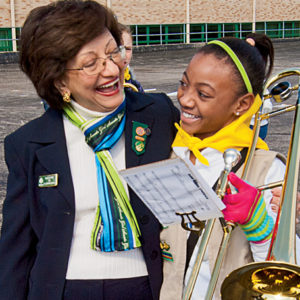
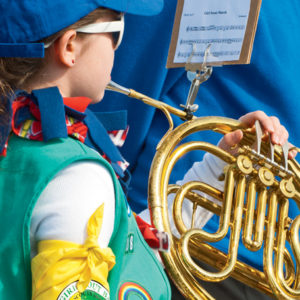
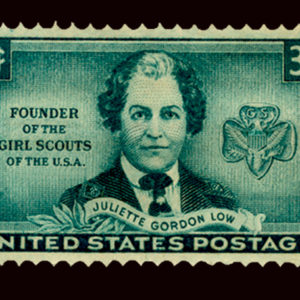
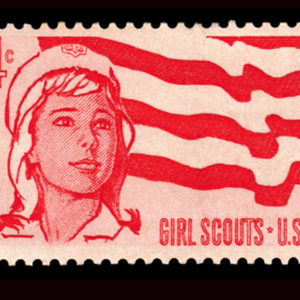
Comments and respectful dialogue are encouraged, but content will be moderated. Please, no personal attacks, obscenity or profanity, selling of commercial products, or endorsements of political candidates or positions. We reserve the right to remove any inappropriate comments. We also cannot address individual medical concerns or provide medical advice in this forum.